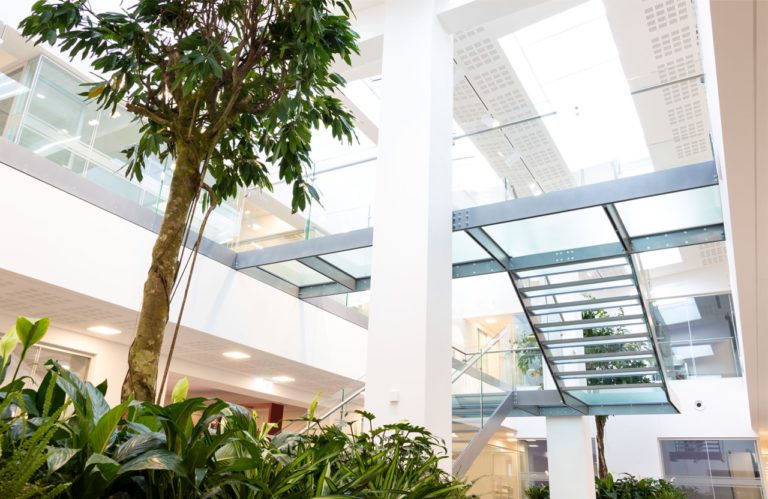Gaetano Pellegrino
26 Novembre, 2020
Coster Group is a brilliant example of how investments on sustainability challenge the present to guarantee the future. For this organization, this is not anymore a “nice to have”, a customer driven priority or a moral obligation: it’s a core value in building company vision and a key driver in decision making.

In JPS we care about Sustainability and we are used to extensively cover this topic on our classes about Supply Chain Strategy. But we know that leading by example is the best way to communicate values and best practices.
This is how Coster introduces the 2019 Sustainability Report in its website:
“[…] Our commitment to environment, social and ethical practices, continuously invests in culture and education, infrastructure, technology, innovation and tangible initiatives both at single facilities and at Group level. The Sustainability and Social Responsibility Group function translates the Governance strategies and policies into assessments, Material action plans, objectives, metrics, monitoring and Accountable reporting.”
We were impressed by this commitment about Sustainability, the measure and accountability based approach, the outstanding results. So we asked to know more and better from one of the company leaders, a professional we work with since several years.
This interview to Gaetano Pellegrino is the result.
Gaetano is Group Procurement & Supply Chain Director at Coster Group with overall responsibility for leading group procurement activities and for implementing group supply chain processes. He worked 11 years for Unilever in different Supply Chain and Procurement roles. He joined Coster in March 2017 as Procurement Director and since March 2018 he took over the responsibility to build Supply Chain function.
He gave us his perspective about Sustainability, Corporate Social Responsibility. And Future.
–
Gaetano, in his famous HBR article “Strategy & Society” Michael Porter introduced the difference between a responsive and a strategic approach to CSR – already on 2006 -: from “mitigating existing or anticipated adverse effects from business activities” to “adding a social dimension to the value proposition, making social impact integral to the overall strategy”. In Coster Sustainability Report the claim: “Coster investments on sustainable tools, highest Standards and best practices achievement challenge the present to guarantee the future” sounds like a perfect example. How did Coster made Sustainability integral to its strategy?
Coster’s journey started 3 years ago when the company decided to put Sustainability at the center of its agenda. Coster has been always recognized as a company that inspire trust to suppliers and customers but also, and more important, to its employees and communities where the company operates. It was a natural decision to increase and focus even more our agenda around sustainability and we are very proud of the fact that we have been able to plan our own sustainable journey taking into considerations the past, living the present and with the aim to build the future. Sustainability in its economic, environment and social pillars now permeates the strategic decisions and is watched for inspiration in all the activities of the company areas at all levels, drives the risk assessment and lays down what is “material” in Coster. We are about to publish our third sustainable report and, being responsible of Procurement and Supply Chain, I am particularly proud of the latest certifications on Sustainable Procurement ISO20400 and Social Responsibility ISO26000. Last but not least we will soon publish the Coster Supplier Code of Conduct.
From an employee perspective, what does it mean, what is the impact on your day by day job?
People is deeply attentive at sustainability and care a lot at what the company is doing across the CSR themes. We have daily experience of our people pride regarding Coster’s approach to Sustainability and the many contributes they make with ideas and action, as well of the new recruits who claim their satisfaction for joining a sustainability-responsive company. I can’t speak on behalf of everyone but for me personally it means to work for a company with purpose that have the wellbeing of its employees as key target and that want to respect the environment where it operates. It means working for a company that treat its people, suppliers and customers with respect and it’s here for the long term. By building a more sustainable company we can influence our supplier and customer network to follow our path and we can contribute with our small actions to make a much bigger difference.
As a competitive advantage, Sustainability is not only “green” but much more. For example, it’s strongly related to product and process innovation: how Coster is introducing Sustainability concepts in its products and processes?
Our product innovation agenda is strictly linked to the one of our customers. For example we support them to develop products with the aim to reduce weight and move towards a more circular economy. In the last year we are working on PCR plastic projects and we will remain vigilant and ready to support introduction of more sustainable materials to support the goals of our customers. Design for recyclability has become a fundamental in the products development, with steps to ascertain the recyclability rate according to the existing streams in practice and at scale. Reduce, replace and reuse models are the basis of Coster eco-design, in line with the New Plastic Economy Global Commitment which we have become signatories in 2020. The LCA tool has been introduced to calculate and disclose our products’ cradle-to-grave impacts on environment. From a process point of view there is a lot of focus on energy reduction and CO2 emission. Starting from 2020 all factories, offices and warehouses in Europe will be powered by renewable grid electricity. In addition we have launched and implemented a number of activities to reduce and save energy on our manufacturing plants. To reduce our CO2 emissions we are reviewing how we can systematically decrease the environmental burden of transportation. We have the ambition to optimize our logistic network and reduce the Kilometres driven to deliver our products. In logistics, costs and carbon emission go hand in hand and activities that cut costs also reduce emissions.
You are leading the Coster Supply Chain and we know how deeply Supply Chains can impact the Sustainability of an organization. Yours has been awarded with the Platinum medal in recognition of CSR achievements and efforts by EcoVadis, ranking Coster on the top 1% of all companies assessed. What are the main initiatives that allowed Coster and its Supply Chain to reach this excellence?
The Platinum medal awarded a set of initiative ranging in a wide view. From a transparent disclosure responding to the most recognized international standards, Coster has worked to fix targets and integrate commitments, facilitates suppliers to build capacity in sustainability fields, assess this capacity through the supply chain and provides training, included CSR clauses in supply chain contracts. Sustainable logistic with alternative haulage systems and optimized networks and routes have been introduced. Using suppliers near to the locations of operations, also with an eye to small industry, brings positive impact on local economy and growth opportunities at all levels. By sharing best sustainable practices with our business partners we aim to leverage our global scale remaining globally connected with our territory.
Sustainability in Supply Chain is a mega trend and today more than ever we see the importance of a strategic approach to it: what is your perspective on the future, considering the voice of customer and of all the company stakeholders?
I am convinced that planning your company sustainable agenda only listening to the “voice of customer” is not the right approach. Customers can open the eyes of certain topics or can lead and drive big initiatives. But it is of paramount importance to find your own way to put sustainability and corporate social responsibility at the center of your supply chain and procurement strategy. Sustainability is not anymore a “nice to have” pillar in your company strategy but it’s the core pillar to build the company vision and the driver for taking or not taking important decisions.
Potrebbe interessarti anche
Get in touch
Iscriviti alla nostra Newsletter: ti promettiamo ogni mese un contenuto esclusivo sul mondo della Supply Chain, novità, interviste ed approfondimenti. Resta sempre aggiornato!
Download brochure
Scarica subito la brochure di JPS per conoscere la nostra realtà aziendale, le proposte che offriamo e i percorsi di formazione disponibili.






